2. Environment and equipment
The lab is consisted of two departments, one department for basic research (2,000 square meters) and one for clinical research (6,000 square meters). The experimental equipment in the lab is worth over 60 million yuan. The lab also has many platforms for scientific research, such as a platform for viral and molecular biology research, a platform for new drug development, a platform for the research of clinical outcome of viral hepatitis, a platform for clinical immunity and molecular therapy, a platform for the diagnosis of pathogenic microorganisms. We mainly focus on conducting basic research that can be applied to solve key problems in clinical practice. To date, the lab has grown into a training base with big influence and academic importance for the cultivation of clinical and research talents.

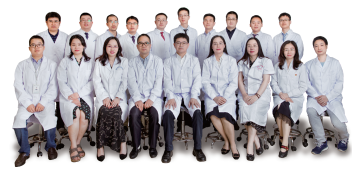
Basic research department and the team
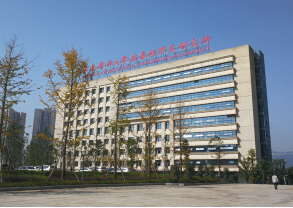
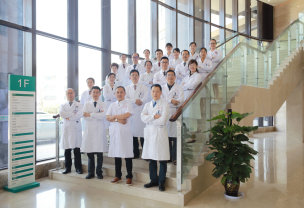
Clinical Research department and the team
3. Important events
(1) Establishment and development of Infectious Diseases
Prof. Zhang Dingfeng established the Department of Infectious Diseases in the Second Affiliated Hospital of Chongqing Medical University in 1975 and established the Institute for Viral Hepatitis in 1985. In November 1992, the Chinese Medical Association of Hepatology Chongqing Branch was established. In the following year, the Association found a journal, The Journal of Hepatology, which was renamed as Chinese Journal of Hepatology in 1996. Prof. Zhang served as editor-in-chief of the journal.
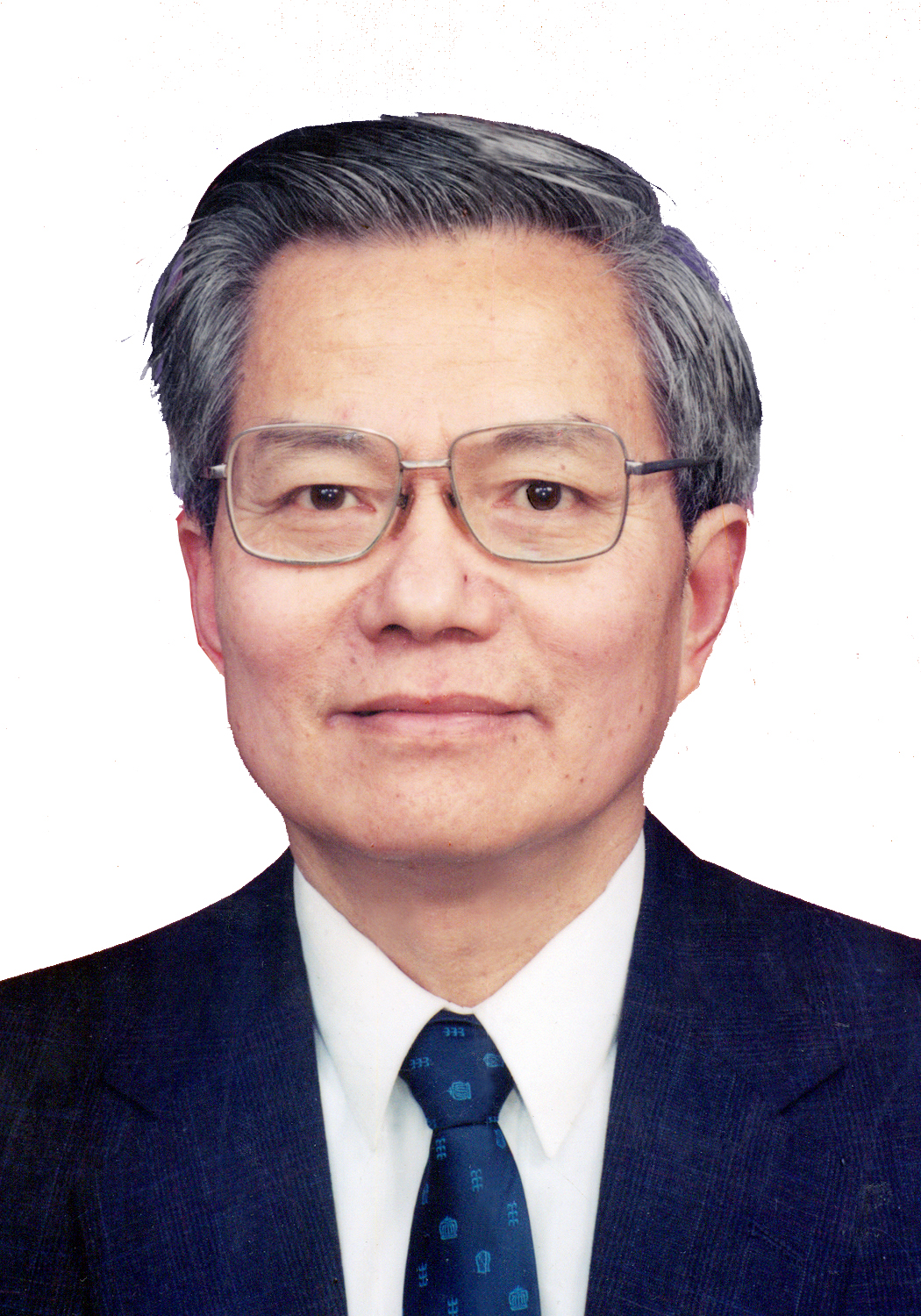
The founder of the lab: Prof. Dr. Zhang Dingfeng

Department of Infectious Diseases and Institute for Viral Hepatitis (1975-2018)
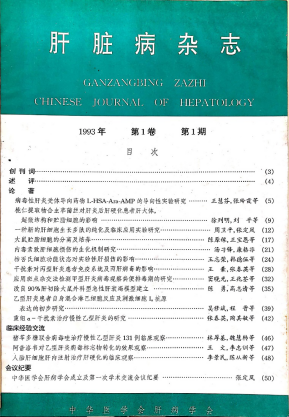
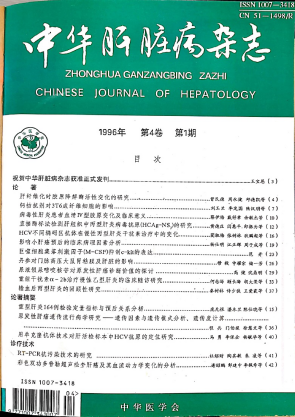
The foundation of of Chinese Journal of Hepatology (1996)
(2) Establishment of Key Laboratory of Molecular Biology for Infectious Diseases (Ministry of Education)
Based on the Institute of Viral Hepatitis and under the leadership of Prof. Ren Hong and Prof. Huang Ailong, the Key Laboratory of Molecular Biology for Infectious Diseases was established in 2003, which received an official recognition from the Ministry of Education in 2007. The specialty, Infectious Disease, was approved as National Key Clinical Specialty in 2013.
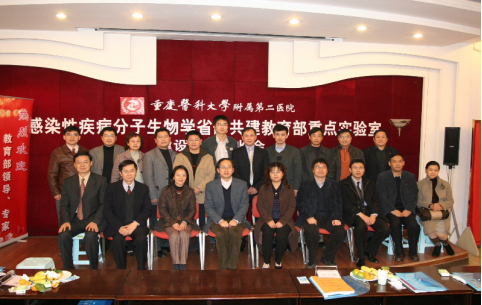
The Key Laboratory of Molecular Biology for Infectious Diseases (Ministry of Education) was officially approved in December 2007
(3) In 2006, Prof. Hong Ren served as the vice chairman of the Chinese Hepatology Branch of the Chinese Medical Association and the editor-in-chief of the Chinese Journal of Hepatology.
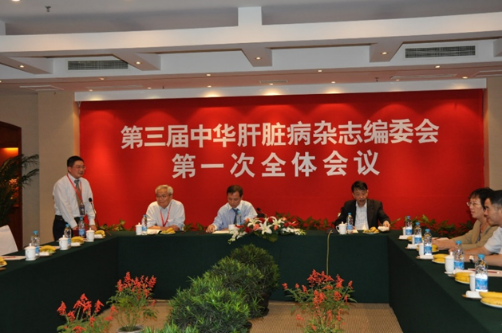
Prof. Ren was elected as the editor-in-chief of Chinese Journal of Hepatology (2006)
(4)The lab successfully applied for a batch of major scientific research program in the prevention and treatment of infectious diseases such as AIDS and viral hepatitis in 2008.
(5)In 2012, Prof. Huang Ailong’s project, Research on New Strategies and Mechanisms of Hepatitis B Surface Antigen Clearance, and Prof. Ren Hong’s project, Research on Early Warning and Prediction of Chronic Hepatitis B Outcome, were both funded by the major scientific research program in the prevention and treatment of infectious diseases.
(6) Prof. Huang Ailong was funded again by the the major scientific research program in 2017 and was elected as the tenth chairman of Chinese Medical Association Microbiology and Immunology Branch.
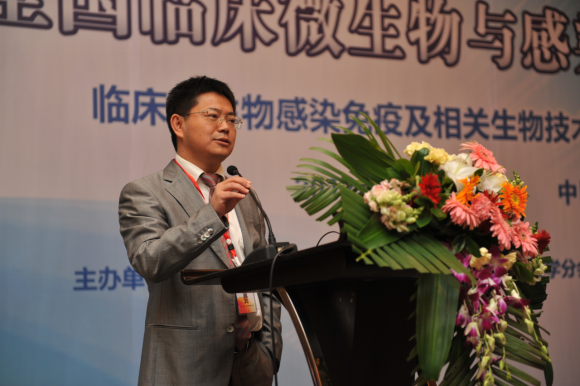
Prof. Huang was elected as the tenth chairman of Chinese Medical Association Microbiology and Immunology Branch (2017)
(7)Prof. Ruan Xiongzhong was elected as the Deputy Chairman and Secretary-General of the Lipid and Lipoprotein Professional Committee of the 8th Chinese Society of Biochemistry and Molecular Biology in 2018.
(8)The clinical research department of the lab was moved from Yuzhong District to Jiangnan District of The Second Affiliated Hospital in August 2019, with an area about 6,000 squre meters.
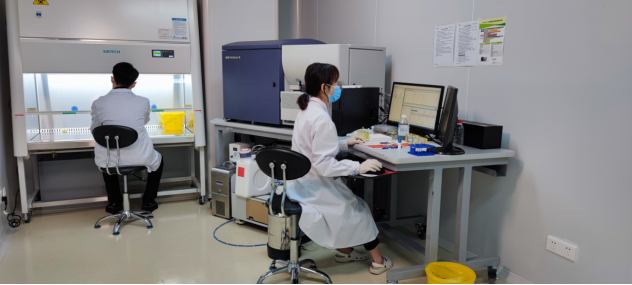
A room for clinical immunology and cell-based therapy
(9) A team led by Prof. Huang Ailong cooperated with BIOSCIENCE Company (Chongqing), and jointly developed the first chemiluminescent COVID-19 antibody detection kit around the world in 2020. They published four papers on top medical journal, Nature Medicine, revealing the clinical and humoral immunological characteristics in COVID-19 patients and the individuals with asymptomatic SARS-CoV-2 infection.
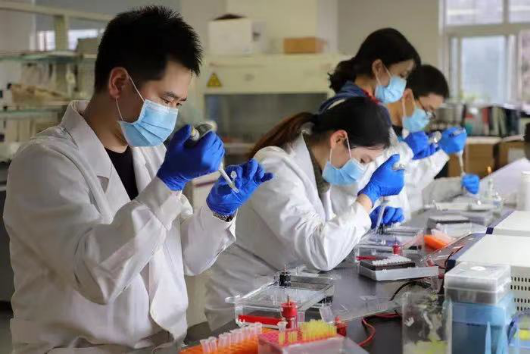
Researchers were developing SARS-CoV-2-related detection kit
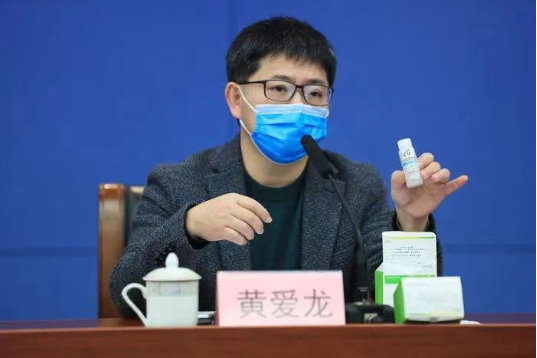
Prof. Huang was introducing the SARS-CoV-2-specific IgM/IgG antibody detection kit
(10) All medical workers in the Department of Infectious Diseases actively participated in the first line of clinical treatment of COVID-19 in 2020. Prof. Hu Peng served as the deputy leader of the expert group for fighting COVID-19 in Chongqing. Additionally, he also served as the leader of the Chinese Government expert group for fighting COVID-19 in Palestine.
(11)Genes & Diseases was founded in 2014 and adopted by the Science Citation Index Expanded (SCIE) in 2019 (impact Factor: 7.103). It is an international journal for molecular and translational medicine. Prof. Huang Ailong (Chongqing Medical University, China) and Prof. He Tong-Chuan (University of Chicago, USA) are the Editors-in-Chief of this journal.

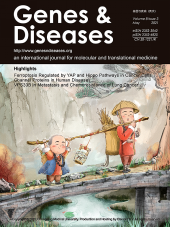
Genes & Diseases
(https://www.sciencedirect.com/journal/genes-and-diseases)
(12)Journal of Clinical and Translational Hepatology (JCTH) was founded in 2013 and adopted by the SCIE in 2020.
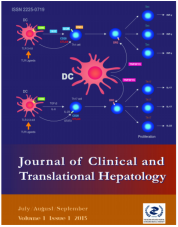

Journal of Clinical and Translational Hepatology
(http://www.jcthnet.com/index.php)
4. Representative research achievements
(1) Key diagnostic technology of corona-virus and its immune response
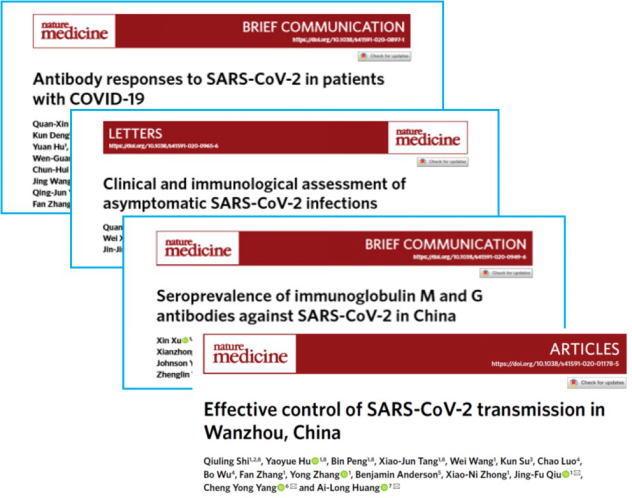
Four papers published in Nature Medicine
(Long Q. et al., Nat Med. 2020; Long Q. et al., Nat Med. 2020; Xu X. et al.,
Nat Med. 2020; Shi Q. et al., Nat Med. 2020)
(2) Clinical outcome of chronic viral hepatitis and new clinical strategies for curing the disease.
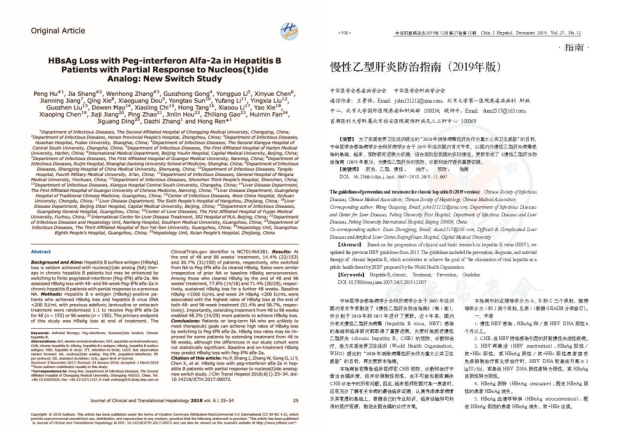
Hu P. et al., J Clin Transl Hepatol. 2018; Chinese Society of Infectious Diseases & Chinese Society of Hepatology, Zhonghua Gan Zang Bing Za Zhi. 2019
(3) New strategies for anti-hepatitis B based on new targets
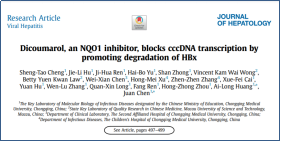
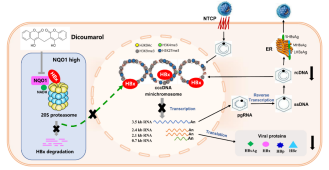
Cheng S. et al., J Hepatol. 2020
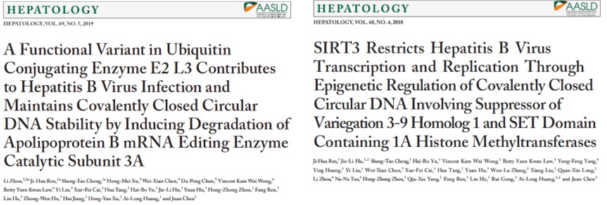
Ren J. et al., Hepatology. 2018; Zhou L. et al., Hepatology. 2019
(4) Molecular mechanism of chronic liver damage caused by metabolic inflammation


Xiang J. et al., J Clin Invest, 2021
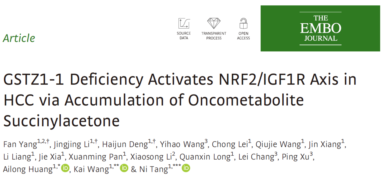
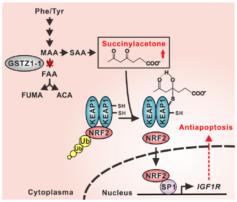
Yang F. et al., EMBO J, 2019
(5) Metabolic inflammation and non-alcoholic fatty liver disease
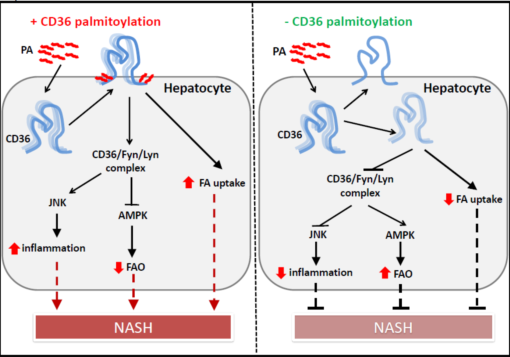
Zhao L. et al., J Hepatol. 2018